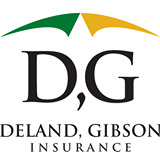Insurance coverage for rental cars can be a bit of a touchy subject. When it comes to rental cars and insurance coverage for rental cars, it’s important that people are careful. But not necessarily suspicious.
of a touchy subject. When it comes to rental cars and insurance coverage for rental cars, it’s important that people are careful. But not necessarily suspicious.
People often go into car rental agreements waiting for the rental company to try to trick them into spending more money than they need to. Insurance coverage for rental cars tends to be the trick they’re waiting to hear about.
Depending on your situation, you may or may not need extra coverage. But you shouldn’t ignore insurance coverage for rental cars automatically. There are three things that you need to check when making that decision.
1. Personal Coverage and Credit Cards
As we discussed in a previous blog, if you pay by credit card you automatically get insurance cover for your rental car. In a lot of cases this is the only cover you’ll need so you should always check with your provider. You should also check your personal coverage. Your own coverage may extend to insurance coverage for rental cars.
2. Check the excess
This advice extends to all insurance policies but also covers hiring a car. When you rent a car there will be excesses on certain parts of the car like tires, windscreen, etc. When you look into insurance coverage for rental cars make sure you know what the excess situation is. This will give you an indication of your insurance needs.
3. Check the Car
This is something to check once you’ve decided on the insurance cover but it’s still something you need to keep in mind. Insurance coverage for rental cars will cover you for damage to the car, but you need to know if you were the one who caused the damage. Make sure you check the car for scratches/damage before you drive away. Insurance coverage for rental cars can protect you but being aware of what damage was caused while you had the car could save you from an excess bill.
Insurance cover for rental cars can be really helpful, just make sure you know what coverage you need. The best way to do that is to check.
Risk and risk management is part of everyone’s life. Insurance is available to offer protection from most risks, but insurance choices are difficult and are not always the preferred risk management solution. Alternatively risk transfer programs are available to offer means of protection against risks when conventional insurance is unavailable, too costly or unsuitable.

